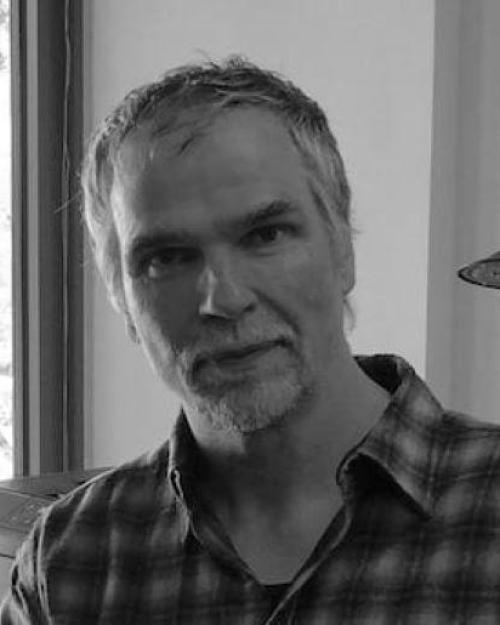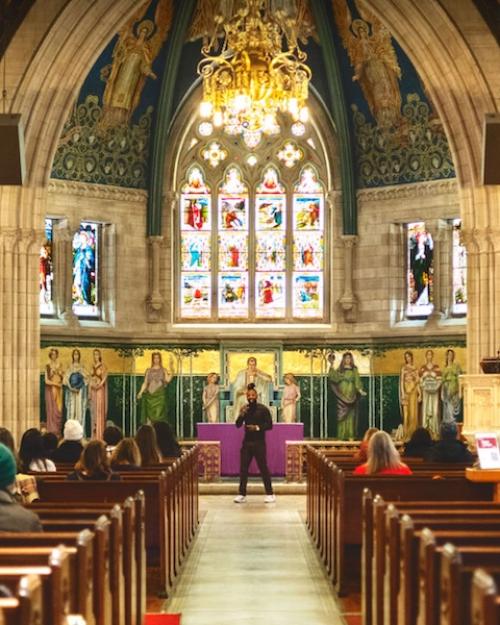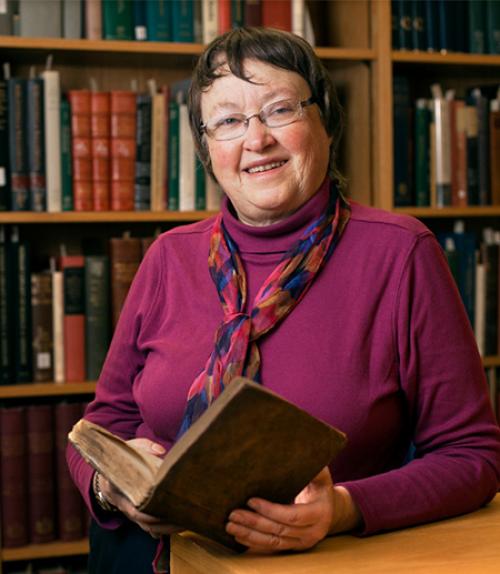"Two Poems and American History"
When I was a 17-year-old freshman at the University of Michigan in the academic year 1960-61, I was caught up in the excitement of John F. Kennedy’s quest for the presidency, although I was still too young to vote. And so I eagerly watched his inauguration on TV on the morning of January 20, 1961. Thus I witnessed the famous moment when Robert Frost, scheduled to read a poem he had drafted for the occasion, could not see the text in the bright sunlight and instead recited a verse he had written in 1923 about American history, “The Gift Outright.” I had never heard it before, but as a budding American historian I found that its words resonated with me. I subsequently looked up the text. I loved the language, and I memorized it:
The land was ours before we were the land’s.
She was our land more than a hundred years
Before we were her people. She was ours
In Massachusetts, in Virginia,
But we were England’s, still colonials,
Possessing what we still were unpossessed by,
Possessed by what we now no more possessed. . . .
Today, with modern critics, I would question many of the premises of this poem: Frost’s “we” clearly referred only to Euro-Americans. Enslaved people of African descent, who composed one-fifth of the population of the colonies at the time of the Revolution, made up no part of Frost’s “we.” Likewise, a later line about “the land vaguely realizing westward” omitted entirely the Native peoples who were displaced by that “realizing,” even though he alluded to the “many deeds of war” involved in the process.
Yet even so as I became a historian of colonial America (which I was not when I first heard the poem), I have found myself returning repeatedly to the last two lines I quoted above (which are not the end of the poem). The final phrase, “possessed by what we now no more possessed,” I realized, expressed a key truth about the subjects of my dissertation, those Americans who remained loyal to Great Britain during the war. They were indeed “possessed by” Britain, but only when they arrived there in exile did they realize that they “no more possessed” that land. They had all referred to Britain as “home,” but in London, Bristol, and elsewhere they pined for their true home, the colonies. They missed American foods, the environment, their friends and family members who had chosen the other side. Some were so homesick they returned soon after the war to the independent United States; others, regarded by the revolutionaries as too “obnoxious” to re-admit, spent the rest of their lives in exile, many in Canada or other British colonies like the Bahamas, where they tried their best to recreate the lives they had left behind. Their story was, and is, for me consequently filled with sadness, as it was for them.
And now, rather surprisingly, my current project relates to the immediately previous line in the poem, “possessing what we still were unpossessed by.” The book I’m writing as I draft this reflection is about the moment—the year 1774—when, I am arguing, Euro-Americans decided that they were “possessed by” their homeland, and that they were no longer “still colonials.” Even though Frost attached no date to the event, or more precisely, series of events, that brought that realization to his subjects, he recognized that a significant transition had occurred, one that led to the poem, its title, and the line in which he expressed that thought: “such as we were, we gave ourselves outright.”
There is another poem that resonates with me to this day, one I encountered much later in my career. Anne Bradstreet wrote this in 1669 about the death of her much-loved three-year-old granddaughter:
With troubled heart and trembling hand I write,
The heavens have changed to sorrow my delight.
How oft with disappointment have I met,
When I on fading things my hopes have set.
...
I knew she was but as a withering flower,
That’s here today, perhaps gone in an hour;
Like as a bubble, or the brittle glass,
Or like a shadow turning as it was.
More fool then I to look on that was lent
As if mine own, when thus impermanent. . . .
The image that has stuck with me for years is not the comparison of the toddler to a “withering flower,” or even a “bubble” or “brittle glass,” but rather that she was “like a shadow turning as it was.” The delicate intimacy of that image, brimming with love and loss, is stunning. It makes me think of a little child, moving away from me just at the periphery of my vision. And it taught me something important. For years, scholars of colonial American history have pondered the statistics showing that one-quarter of all children died before age one, and close to half by age 21. That’s why life expectancy seemed so short in the colonies. If one lived to 21, one had a good chance of living to 60 or so, but child mortality was so severe it brought the average down. So historians, including me, have wondered: if so many children died in infancy, did adults keep their distance emotionally from them, until they had lived long enough to make continued life likely? In my own work I found that in the mid-18th century very young infants were referred to as “it,” and I posited from that language an emotional distancing in their parents.
But then I read Bradstreet’s poems about the deaths of her children and grandchildren. And I realized that whatever the source of the “it” language, emotional distance was surely not involved. Nothing about Bradstreet suggests she was at all unusual, except for her way with words. Her poetry expressed the emotions of many parents and grandparents struggling with losses they experienced all too often. Even though I have not quoted either of these poems in any of my work, they have both added to my understanding of Early American history.
About the Transformative Humanities Project
Faculty in the College of Arts & Sciences share a belief in, and speak often with our students, their parents, and the broader public about, the importance of the humanities for shaping deep and meaningful human lives. These short reflections by our faculty illustrate — in concrete and personal ways — how encounters with the stuff of the humanities have in fact been transformative in their own lives. In composing these reflections faculty were responding to the following assignment: Pick a single work in the humanities that has profoundly affected you — that inspires you, haunts you, changed the way you think about things, convinced you to pursue your life’s work, redirected your life’s work . . . in short, a work that has made your life in some way deeper or more meaningful.
This reflection is one of the many thought-provoking and inspiring faculty contributions to the “Transformative Humanities” project, part of the College of Arts & Sciences’ New Century for the Humanities celebrations. Read more of them on our New Century for the Humanities page.




